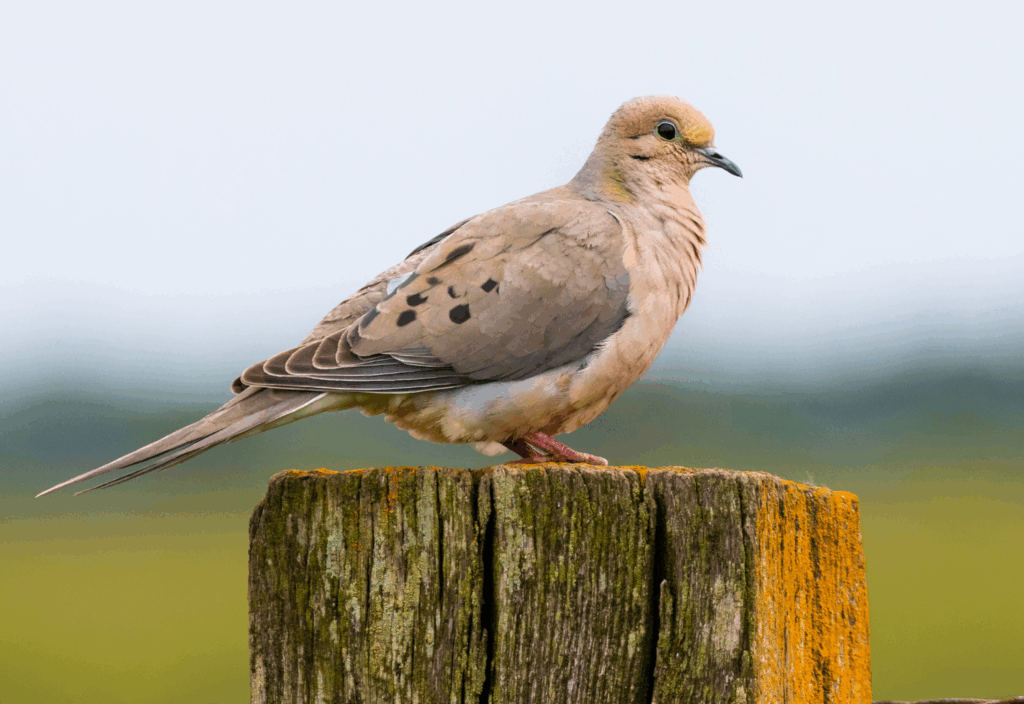To buy your Illinois hunting license, visit the official Illinois licensing website. Be sure to check out the most recent hunting regulations before hitting the field.

Dove hunting is a great way for hunters to spend some time in the field this year. Known for their fast flight and plentiful numbers, doves present a challenging yet accessible hunting opportunity, and make for fine table fare as well.
Knowing exactly what permits and licenses you need ensures a legal and enjoyable hunting experience. In this article, we’ll talk through the key things to know before setting foot in the field this year.
To hunt Dove in Illinois, you’ll need a valid Illinois hunting license regardless of whether you are a resident or a nonresident. Both groups must obtain this license to participate legally in dove hunting seasons.
In addition to the general hunting license, you’ll also need a state habitat stamp and HIP registration. Hunters must comply with all migratory bird regulations as doves are considered migratory game birds.
Hunter education is required for first-time hunters born on or after January 1, 1980. This ensures that all hunters have the necessary knowledge to hunt safely and responsibly.
Specifically, to hunt Dove in Illinois, you’ll need:
While no special dove-specific permits or tags are required beyond the standard hunting license, hunters must be aware of federal requirements related to migratory birds. This includes the Migratory Bird Harvest Information Program (HIP) registration, which is mandatory for all migratory bird hunters in Illinois.
Hunters must register for HIP annually, which helps wildlife agencies monitor migratory bird harvests and manage populations effectively.
While dove hunting is generally considered “over-the-counter,” Illinois does provide some draw-based opportunities for special access areas and opportunities.
The Dove hunting season in Illinois is typically split into two seasons, with the first running from early September through mid-November. The second season usually picks back up in late December, running through early January. Exact dates vary each year, so be sure to check hunting regulations for updated dates.
Legal hunting methods include the use of shotguns with appropriately sized shot (typically size 7, 7.5, or 8). Hunters may use lead shot when hunting doves, except when hunting areas specifically require non-toxic shot (such as state or federal wetlands).
For the most accurate and up-to-date season dates, hunters should consult the Illinois Department of Natural Resources (IDNR) official website, which provides detailed information on season openings, closings, and any regional variations.
Illinois enforces a daily bag limit for dove hunting to ensure sustainable harvest levels. Typically, the daily bag limit is 15 doves per hunter, with a possession limit of 45 doves. These limits apply statewide and are strictly enforced.
Legal hunting methods include the use of shotguns with appropriately sized shot (typically size 7, 7.5, or 8). Hunters may use lead shot when hunting doves, except when hunting areas specifically require non-toxic shot (such as state or federal wetlands).
Hunters must also adhere to all safety and ethical hunting practices outlined by the IDNR. For comprehensive details on bag limits, firearm restrictions, and other legal considerations, visiting the official Illinois Department of Natural Resources website is recommended.
Dove hunting opportunities in Illinois are available on numerous public lands, including IDNR-owned or managed lands. These areas provide accessible and well-managed habitats for dove hunting.
Hunters may also pursue doves on private lands, but only with explicit permission from the landowner. It is important to respect private property rights and obtain written consent before hunting on private property.
The IDNR offers detailed public land hunting maps and tools online, which help hunters locate suitable dove hunting areas throughout Illinois. Utilizing these resources can enhance the hunting experience by identifying legal and productive hunting grounds.
Hunter education is required for first-time hunters born on or after January 1, 1980. The Illinois Hunter Education Program covers essential topics such as firearm safety, wildlife conservation, and ethical hunting practices.
Hunters under the age of 16 may hunt under the supervision of a licensed adult without completing the course, but it is highly encouraged to complete the education program.
For more information and to access hunter education resources, prospective hunters can visit https://recademics.com/hunting/Illinois.
You can purchase your Illinois hunting license for Dove through the Illinois Department of Natural Resources. Licenses are available both online and in person at authorized vendors such as sporting goods stores and county clerk offices.
To buy online, visit the official Illinois DNR website where you can create an account, complete the application, and pay for your license electronically. This method is convenient and provides immediate access to your license.
For those who prefer in-person transactions, many local retailers and government offices offer hunting licenses during regular business hours.
For detailed step-by-step instructions and additional guidance, refer to the comprehensive guide at https://recademics.com/blog/hunting/how-to-get-a-hunting-license-in-Illinois/.
Yes, in addition to your standard Illinois hunting license and HIP registration, hunters must purchase a state habitat stamp as well.
Yes, nonresidents can hunt dove in Illinois but must purchase a nonresident hunting license and comply with all state regulations.
Hunter education is required for first-time hunters born on or after January 1, 1980. Those under 16 may hunt under adult supervision without the course.
Official season dates are published annually by the Illinois Department of Natural Resources and can be found on their website.
The daily bag limit is 15 doves per hunter, with a possession limit of 45 doves. These limits help maintain sustainable dove populations.
This is a FREE Boating course.